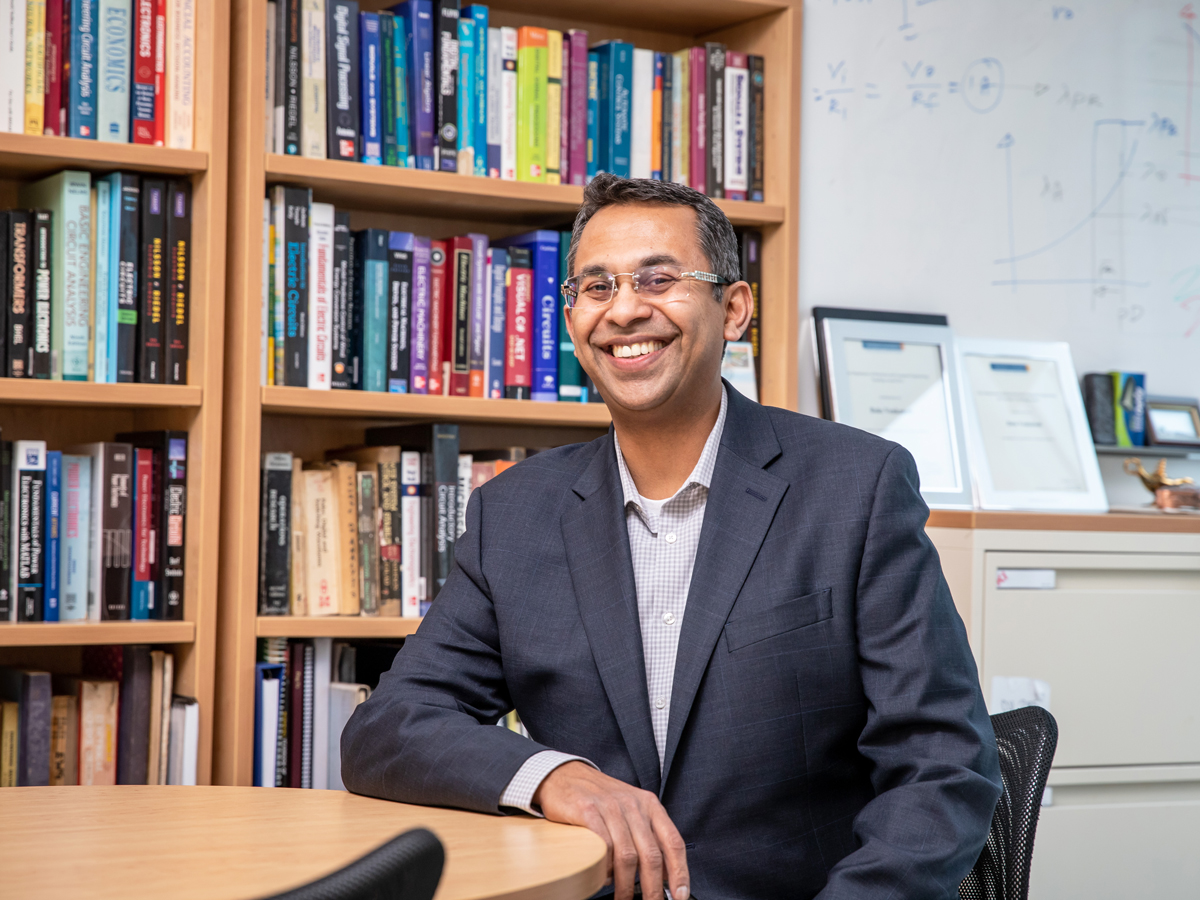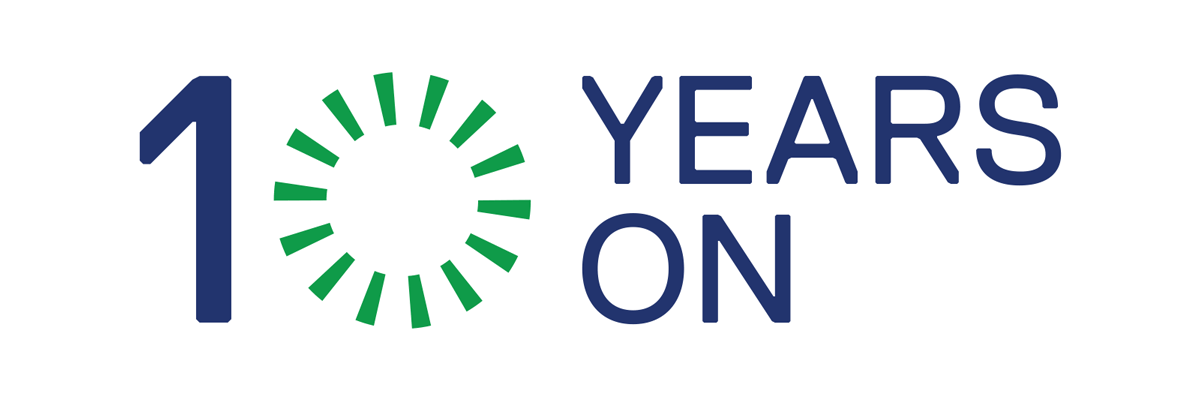10 big questions for founding Academic Director Bala Venkatesh

Dr. Bala Venkatesh, founding Academic Director of the Centre for Urban Energy at Ryerson University.
In 2010, Bala Venkatesh, a professor in Ryerson University’s Department of Electrical and Computer Engineering, was appointed as the Centre for Urban Energy’s first academic director. He was in place when the centre opened its doors in May 2011 and began to establish itself as a significant player in Ontario and Canada’s research and development landscape.
Among many achievements, during Bala’s tenure the Centre for Urban Energy (CUE) has undertaken 76 major research projects for its sponsors and increased its funding to more than $30 million. In addition, the centre moved to a new location housing several world-leading labs, launched a clean energy incubator, was recognized by the Canadian Electricity Association, developed a suite of industry-backed education programs and has trained more than 1,000 highly employable graduates. Ultimately, CUE projects have impacted the electricity grid for the better, helping reduce emissions while aiming to make energy more reliable, affordable and accessible.
On the occasion of CUE’s 10th anniversary, I sat down with Bala to ask him 10 questions to mark 10 big years. Reflecting on the past decade, he is clear about what makes the centre special and why he looks to the future with a renewed sense of optimism and purpose. Here are highlights from our conversation:
1. What was your reaction when you were offered the job of academic director?
I was pretty happy! And a little anxious as well because it was something that I hadn't done before. It was a once-in-a-lifetime chance to create a research centre and do all the good things that Ryerson wanted to do. It was a phenomenal opportunity.
2. What were the early days like as you worked to establish the centre?
It was of course a lot of work, but it was also a fascinating time because we had the opportunity to create something brand new together. So many of my colleagues at that time gave a lot of their time, energy and thinking to set it up. At that time Professor Mohamed Lachemi [now president and vice-chancellor of Ryerson University] played an integral role by developing all the policies surrounding the operations of the centre. Many times, where the CUE team did not know what to do, he would come in and fill in the gaps and lead from behind in so many different ways. He was the go-to person to move things forward. Dr. Sri Krishnan and then, of course, at that time, President Sheldon Levy and Provost Alan Shepard also played pivotal roles in enabling us. The research office helped galvanize our efforts by helping us attract funding from sponsors and collaborators. It's not that the CUE team was left to figure everything out for itself and told to go make it happen. At every step there was a lot of support from Ryerson which helped the centre get off to a successful start.
3. What is a typical day like for you as director – maybe pre-pandemic?
It hasn't changed a whole lot though, before and after the pandemic. The calendar is full the same way it was before! A typical day requires me to continue my research, which is basic and applied – from writing basic equations to power engineering and electric circuits – and working with students – undergrad, master's and PhD. Then I have to worry about project milestones and delivery, working with our research fellows and project managers to examine where the projects are, provide assistance and guidance where necessary, and be guided on some topics. I need to worry about business development, and how the centre will generate its next set of research projects, so I also do a lot of stakeholdering, which means connecting with companies and utilities. So it’s a really multifaceted role, which goes from teaching and research all the way to stakeholder management with CEOs, stopping in between for reporting, administrative, HR and financial aspects. It's like a marathon where you have to sprint every now and then. Because each one of those aspects involves individual races too.
4. What would you say has been your toughest challenge of the past decade?
I think the toughest challenge is to understand where we are going as a society. Just in 2020, the governments of Canada and Ontario both released hydrogen strategies, which weren’t there in the past. If you look at predictions and forecasts for energy and electricity demand in 2010, it was all going up. We were predicting record increases in demand. Today we see that demand is decreasing. So there has been a huge shift in terms of how we source, store and consume our energy. Our research is there to fulfill societal requirements. So to know where society is going 25 years hence, and research and develop solutions, technologies and products for that – that's really what our mandate is. And how we fulfill that mandate is, I think, our biggest challenge. Everything else falls into place.
5. What is your proudest achievement as director?
I think being a part of the CUE team, working with all of you, and the wider ecosystem of research and innovation that we’ve created. So we now have a healthy ecosystem, where we have players or participants – like yourself, like our other colleagues, like our students, like our entrepreneurs, like our industry partners – who understand the system and are able to move it forward. To get into specific projects, we developed the pole-top storage unit that's been deployed on the grid and the large-scale battery solution that's been deployed and tested. We've created so many firsts that I think are great achievements and it's not just one person achieving them. They are all the result of a team effort and are all a shared success.
6. What new skills do you think you have learned in the last 10 years?
There are so many, but I think the biggest one would be that I have become better at understanding people. And when I say people, I include myself! So if it is a sponsor, what does the sponsor want? What do my colleagues want? What do my students want? What do I want?
7. What would you say has been the project that has had the biggest impact on society?
I think [the NSERC Energy Storage Technology Network] NESTNet, uniquely, has had the biggest impact on society. It's brought forward the importance of energy storage. I think we have touched so many different people in the last six years with a singular message: that energy storage will immensely benefit Canada, in terms of being able to provide a stable energy supply from renewables and also maybe help reduce the cost of assets and make the system more flexible and reliable. And we’ve shown that it is possible. We’ve educated students who can continue this work well into the future. We’ve enabled researchers across Canada. We’ve brought along utilities, private companies, public companies and governments to participate in this journey and provide input along the way to educate us. I think it's a significant achievement by all of us at CUE and at Ryerson.
8. Is there anything unique about CUE or its model that has helped it thrive?
I think what is unique is that we are focused on what our partners need us to get done instead of just focusing on what we might want to do from an academic standpoint. The words “industry-driven, academically led” have guided our work from the start. We embrace that model and find ways to keep it going in our academic setting.
9. What do you hope the next 10 years holds for CUE?
The way I see it is that we want to create this future energy system which is clean, green and accessible to all. And when we say those words we actually mean it. This is what we want to do, and we will do what it takes to go there because that's what, I think, our country wants, our province wants, and what we all want. So how do we get there? Because it is one thing to wish for it, but another thing to go there and get it done. There are several angles to it – stakeholdering, policy making, basic research, product development, pilots, education and outreach. We want to demonstrate our solutions out in the world, where people can come, touch, feel and experience them. We want to create educational programs that people can go through and learn what these systems mean and how to go out and get them deployed in their own societies or own communities. We will do all of these, as we do today, for the foreseeable future.
10. How do you plan to celebrate the 10-year anniversary?
Um, by doing some more work. There is a lot to get done. So we should be getting started.
Matthew Kerry is a CUE's manager of marketing and communications
"The way I see it is that we want to create this future energy system which is clean, green and accessible to all."
